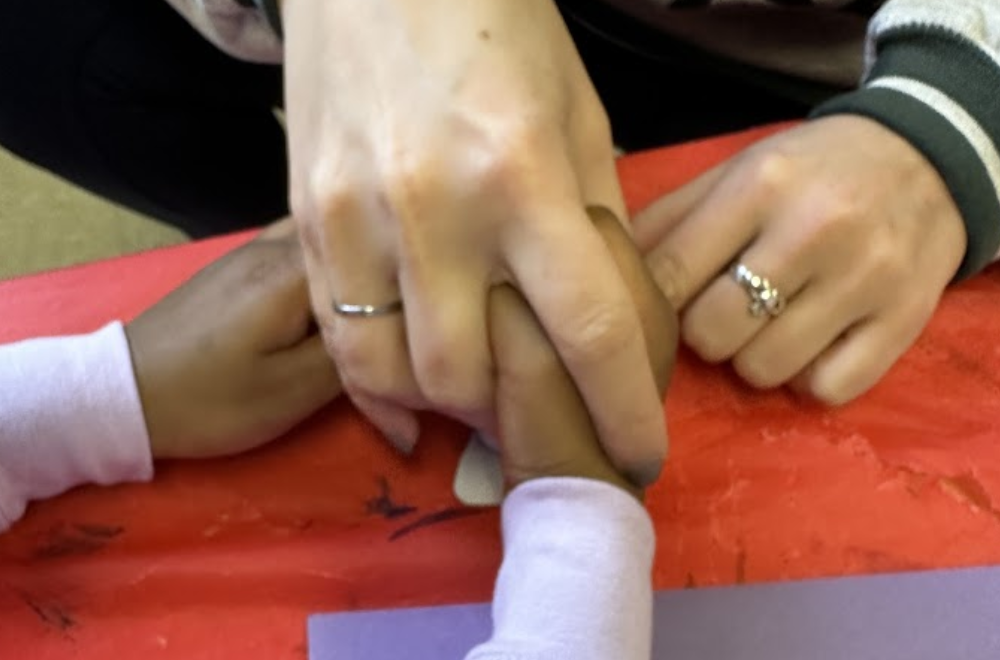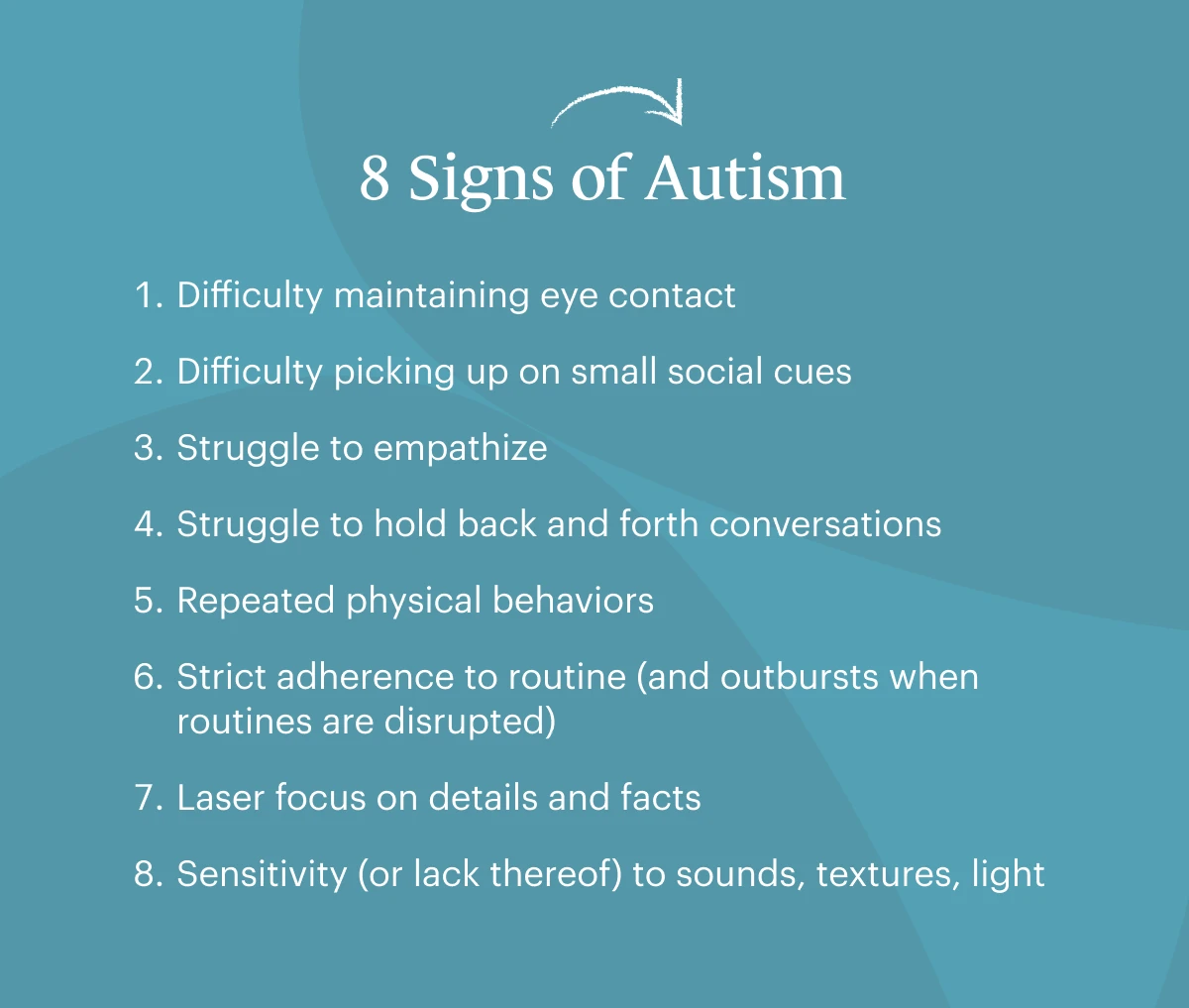Benefits of early support from an Aba Therapist Near Me makes a difference
Benefits of early support from an Aba Therapist Near Me makes a difference
Blog Article
Recognizing the Effect of Behavioral Autism on Every Day Life and Social Communications
You may not recognize how deeply behavioral autism impacts every day life and social interactions. Individuals on the spectrum typically navigate a world full of interaction obstacles and sensory overload. These obstacles can result in disappointment and seclusion, impacting their connections and general well-being. Understanding these subtleties is crucial for promoting supportive settings. What methods can we apply to produce more significant links and inclusive areas? The solutions could amaze you.
Specifying Behavioral Autism and Its Characteristics
Behavior autism, frequently described as autism spectrum disorder (ASD), incorporates a variety of conditions identified by obstacles in social interaction, interaction, and recurring behaviors. You may discover that individuals with ASD usually struggle to interpret social cues, which can lead to misconceptions in discussions. They may locate it tough to develop eye call or engage in tiny talk, making social circumstances really feel frustrating.
Communication difficulties can manifest in various methods, from delayed speech advancement to a preference for making use of fewer words. By identifying these characteristics, you can cultivate a setting that promotes approval and encourages efficient communication, assisting people with autism grow in their everyday communications.
The Spectrum of Autism: Recognizing Irregularity in Habits
Autism range problem (ASD) isn't a one-size-fits-all diagnosis; it varies commonly amongst individuals. You could observe that some individuals with ASD display light symptoms, while others might face a lot more considerable difficulties. This variability can manifest in behaviors, interests, and sensory sensitivities. You might run into individuals that are highly verbal and engage quickly in discussions, while others might like singular tasks or interact non-verbally.
Furthermore, the way people with ASD react to sensory input can vary substantially; some could be overwhelmed by loud sounds or bright lights, whereas others prosper in stimulating environments. The range additionally includes distinctions in social interactions; some individuals might battle to translate social signs, while others browse social setups with family member simplicity. Recognizing this irregularity is essential, as it aids you value each individual's one-of-a-kind experience and dressmaker support to their specific demands, fostering a much more inclusive atmosphere for every person.
Interaction Difficulties Encountered by People With Autism
When you communicate with people on the autism range, you might observe their distinct interaction obstacles. They often deal with troubles with both nonverbal and verbal hints, which can influence their social communications. Understanding these obstacles is necessary for fostering far better links and assistance.

Verbal Interaction Troubles
Numerous people on the autism range experience spoken communication problems that can considerably impact their daily interactions. Your volume, pace, or tone might not straighten with social assumptions, triggering others to misunderstand your intentions. Recognizing these challenges can help you and your support network create techniques to enhance interaction and cultivate better links with others in your day-to-day life.
Nonverbal Interaction Barriers
Spoken communication isn't the only obstacle individuals on the autism spectrum face; nonverbal interaction barriers can be simply as considerable. These challenges can lead to misunderstandings or misinterpretations of social hints, making communications really feel complex or frustrating. By attending to nonverbal communication, you can discover strategies to enhance your social experiences and improve your general top quality of life.
Social Communication Effects
Social communications can typically feel frustrating due to the special communication challenges dealt with by individuals with autism. You might have problem with analyzing social signs, making it difficult to comprehend mockery or body movement. This can result in misconceptions or uncomfortable minutes in discussions. In addition, launching and preserving discussions may really feel challenging, causing anxiousness in social circumstances. You may prefer structured atmospheres, making spontaneous interactions awkward. It's likewise common to experience trouble in participating in small talk, which can prevent developing brand-new friendships. Acknowledging these obstacles can aid you locate techniques to boost communication, such as exercising social skills in risk-free settings or using aesthetic aids - Autism Therapist. Recognizing your needs permits you to navigate social interactions with higher self-confidence and simplicity.
Social Interaction and Partnership Building in Autism
While structure partnerships can be testing for people with autism, comprehending their distinct viewpoints and interaction styles can foster significant links. You may notice that lots of individuals on the range favor direct interaction and may struggle with social signs or small talk. By being simple in your interactions, you can help develop an environment where they top article feel comfortable.
Put in the time to listen and observe exactly how they share themselves. This understanding can direct you in steering conversations better. Taking part in shared passions can likewise function as a bridge to much deeper connections. Whether it's a leisure activity, a preferred program, or a common passion, these typical threads can open up doors to relationship.
Day-to-day Live Routine: Navigating Methods and obstacles
Steering day-to-day life regimens can be especially challenging for people with autism, specifically when unexpected modifications occur. To navigate these obstacles, take into consideration implementing visual timetables or lists.
Developing a regimen that consists of sensory breaks can likewise be beneficial. You can prepare time-outs throughout your day to recharge. It's important to communicate with those around you, letting them understand your needs and choices. This assists develop an understanding atmosphere.
Lastly, method mindfulness techniques to take care of stress and anxiousness. Straightforward breathing workouts or grounding techniques can make a substantial distinction. By incorporating these methods, you can boost your everyday routine and decrease disruptions, making life feel more workable.
Strengths and Capabilities of Individuals on the Autism Spectrum
Comprehending every day life regimens is simply one facet of the autism experience. Many individuals on the autism range possess exceptional staminas and abilities that establish them apart. You might find that your interest to information is exceptional, enabling you to succeed in jobs that call for accuracy and focus. Your ability to assume outside the box can cause ingenious remedies in different circumstances.
Additionally, your memory skills frequently shine, especially in locations of interest. Aba Therapist. This propensity for maintaining info can make you a valuable resource in fields like science, art, or technology. You might also exhibit strong aesthetic thinking, enabling you to visualize intricate ideas and fix problems artistically
Additionally, your unique viewpoint her comment is here on the world can cultivate empathy and understanding in others, enhancing social interactions. Accepting these strengths not only improves your self-confidence however additionally helps others value the varied skills you bring to the table.
Producing Comprehensive Settings for People With Autism
Creating comprehensive environments for people with autism starts with creating sensory-friendly areas that cater to their special requirements. You can also cultivate chances for social interaction, helping to construct links and relationships. By making these adjustments, you'll add to a much more welcoming atmosphere for everybody.
Creating Sensory-Friendly Spaces
While designing sensory-friendly rooms, it's essential to assess the special needs of individuals with autism. Beginning by selecting soothing colors and soft illumination to develop a calming atmosphere. Include silent zones where people can charge and pull away when bewildered. You'll desire to decrease loud noises and interruptions, using soundproof materials or white sound machines to assist preserve tranquility. Take into consideration responsive elements like soft textiles or fidget-friendly objects that can supply convenience. Ascertain that areas are versatile, permitting simple reformation to fit different tasks. Ultimately, include visual schedules or clear signs to assist people navigate the area confidently. By thoughtfully incorporating these components, you can develop an inviting atmosphere that sustains sensory requirements and advertises overall well-being.
Promoting Social Interaction Opportunities
Designing sensory-friendly areas not only addresses individual comfort but likewise sets the stage for meaningful social communications amongst people with autism. Motivate peer mentoring, combining individuals with autism with supportive peers who can lead them with social situations. By carrying out these methods, you can boost social opportunities, helping people with autism construct friendships and strengthen their social skills in a safe, welcoming atmosphere.

Regularly Asked Questions
How Can Friends Support A Person With Behavioral Autism?
You can sustain a friend with behavioral autism by holding your horses, listening actively, their website and appreciating their boundaries. Participate in tasks they appreciate, interact openly, and create a comfy setting where they really feel valued and understood.
What Resources Are Available for Parents of Kid With Autism?
You can explore numerous resources for parents of children with autism, consisting of support system, educational websites, and local neighborhood services. Getting in touch with other moms and dads can also provide useful insights and shared experiences to assist navigate difficulties.
Can Behavioral Autism Change In Time?

Yes, behavioral autism can alter gradually. You could see changes in communication, social abilities, and habits as your child grows. Early treatment and assistance commonly play crucial functions in these developmental modifications.
How Do Sensory Level Of Sensitivities Influence Daily Life?
Sensory sensitivities can make daily experiences frustrating. You could deal with loud noises or brilliant lights, causing stress and anxiety or evasion. Finding atmospheres that suit your needs can substantially improve your convenience and total every day life.
What Prevail Misconceptions Concerning Behavioral Autism?
You may believe behavioral autism only influences interaction abilities, however it's more complicated. Lots of presume people lack compassion or knowledge, which isn't real. Comprehending these misconceptions helps foster approval and assistance for those on the spectrum.
Behavioral autism, often referred to as autism spectrum condition (ASD), incorporates a variety of problems defined by difficulties in social communication, interaction, and repeated habits.Social communications can typically really feel overwhelming due to the distinct communication obstacles encountered by individuals with autism.Creating sensory-friendly spaces not just addresses private convenience however additionally establishes the phase for meaningful social interactions among individuals with autism. Motivate peer mentoring, pairing individuals with autism with helpful peers that can guide them via social situations. By carrying out these methods, you can enhance social opportunities, helping people with autism develop friendships and reinforce their social abilities in a risk-free, inviting setting.
Report this page